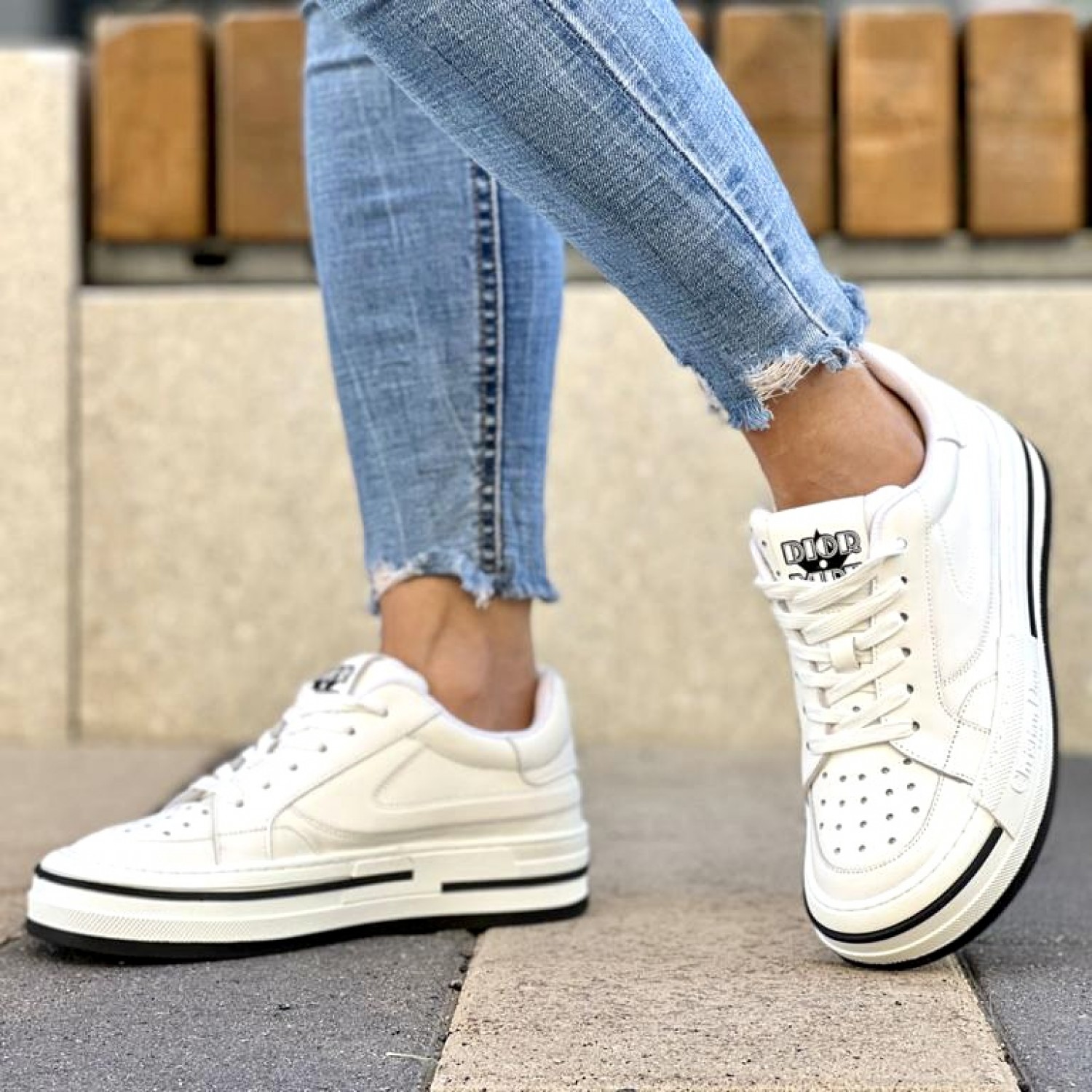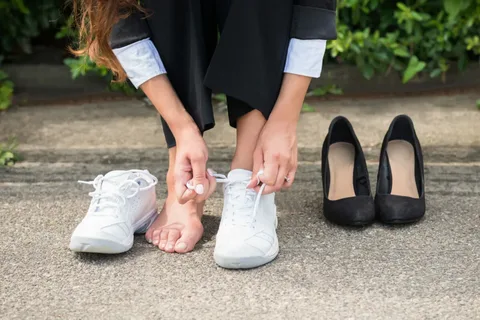Do you have sore feet after a long shift in the clinic? Finding the right pair of clinical shoes that is both comfortable and durable can be a challenge. That’s why we’ve curated a list of our top picks for clinical footwear. With options ranging from slip-resistant sneakers to stylish clogs, you can find the perfect combination of comfort, style, and durability. Keep reading to find out which clinical footwear is proper for you!
Why Comfortable Clinical Footwear Is Important?
When working long shifts in a clinical setting, having comfortable footwear is essential. Your feet carry you through the day; if they are not adequately supported, you can end up with sore feet, tired legs, and even back pain. This is why investing in comfortable clinical footwear is so important.
Firstly, comfortable clinical footwear can provide the necessary support and cushioning to keep your feet comfortable and pain-free. Whether on your feet for hours at a time or constantly on the move, having the right shoes can prevent discomfort and reduce the risk of foot-related issues.
Secondly, clinical footwear that fits properly can help prevent accidents and injuries. Slip-resistant soles and sturdy construction can keep you stable and secure, even on slippery surfaces or in high-pressure situations.
Lastly, comfortable clinical footwear can boost your confidence and overall well-being. Being comfortable and feeling good in your shoes can positively impact your performance and attitude at work.
So, if you’re tired of dealing with sore feet after a long shift, it’s time to prioritize your comfort and invest in high-quality clinical footwear. Your feet will thank you, and you’ll be able to focus on providing the best care for your patients.
Factors to Consider When Choosing Clinical Footwear
Choosing the proper clinical footwear is essential for healthcare professionals who spend long hours on their feet. With so many options available, it can be overwhelming to find the perfect pair. But fear not; we’re here to help! When choosing clinical footwear, there are several factors to consider.
First and foremost, comfort is vital. Look for shoes that provide ample cushioning and support. Features like arch support and memory foam insoles can make a difference in keeping your feet comfortable throughout the day.
Durability is also crucial, as you want your clinical boots to withstand the demands of your busy work environment. Look for shoes made from high-quality materials that are known for their durability. Reinforced stitching and sturdy soles are also important features to look out for.
Another factor to consider is slip resistance. In a clinical setting, spills and slippery surfaces are not uncommon. Ensure your shoes have slip-resistant soles to minimize the risk of accidents and falls.
Finally, style can also be a consideration. While it may not be the top priority, finding clinical footwear that suits your style can boost your confidence and make you feel more comfortable in your work attire.
By considering these factors when choosing clinical footwear, you can ensure that you find a pair that is both comfortable and durable, allowing you to focus on providing the best care for your patients.
Comfortable and Durable Clinical Shoes
When finding the perfect clinical shoes, comfort and durability are essential. After all, you’re on your feet for long hours, constantly moving and caring for your patients. That’s why we’ve curated a selection of clinical boots that are comfortable and built to last.
Our top picks for comfortable and durable shoes include options designed with your needs in mind. From supportive cushioning to slip-resistant soles, these shoes have it all. You’ll find features like arch support, memory foam insoles, and reinforced stitching to ensure maximum comfort and longevity.
But comfort and durability don’t have to mean sacrificing style. We’ve handpicked shoes that provide the necessary support and come in a range of stylish designs. So you can feel confident and comfortable in your footwear, no matter your style.
Investing in comfortable shoes is investing in yourself. Your feet will thank you, and you’ll be able to provide the best care for your patients without the distraction of sore feet or discomfort. So why wait? Check out our top picks and enter a world of comfort and durability today.
 Maintaining Your Clinical Footwear
Maintaining Your Clinical Footwear
Taking care of your clinical footwear is as important as choosing the right pair. Properly maintaining your shoes can ensure they stay comfortable, durable, and ready to support you through long shifts in the clinic. Here are some tips to help you maintain your clinical footwear.
Firstly, clean your shoes regularly. Wipe off any dirt or stains with a damp cloth and mild soap. Avoid using harsh chemicals that can damage the materials. Allow your boots to air dry naturally, and avoid exposing them to direct heat sources, as this can cause shrinkage or deformation.
Secondly, consider using shoe inserts or orthotics for additional support. These can help alleviate pressure on your feet and provide extra cushioning. Replace the inserts regularly to maintain their effectiveness.
Thirdly, rotate your footwear. By alternating between multiple pairs, you allow them to fully dry and rest between uses, preventing odors and prolonging their lifespan.
Lastly, inspect your shoes regularly for any signs of wear and tear. Look out for loose stitching, worn-out soles, or any other damage. Address these issues promptly to prevent further deterioration and ensure the longevity of your clinical footwear.
By following these maintenance tips, you can keep your clinical footwear in excellent condition, allowing them to continue providing you with the comfort and support you need. Regularly cleaning your clinical footwear will not only help maintain their appearance but also remove any bacteria or contaminants that could cause foot problems. Additionally, using shoe inserts or orthotics can provide extra support and prevent foot conditions such as plantar fasciitis or flat feet. Lastly, inspecting your shoes for any signs of wear and tear is essential for preventing accidents or discomfort. If you notice any issues, consider getting them repaired or replacing them to avoid further damage. Overall, investing time and effort in maintaining your clinical footwear will pay off in the long run by ensuring their durability and your comfort on the job.
FAQs
FAQ #1: Are clinical shoes only available in boring styles or can I find fashionable options?
Absolutely not! While comfort and durability are important factors to consider when choosing clinical footwear, you don’t have to sacrifice style. Many brands now offer a wide range of fashionable options that are designed specifically for healthcare professionals. From sleek sneakers to trendy clogs, you can find clinical shoes that not only provide the necessary support and comfort but also match your personal style. Whether you prefer neutral colors or bold patterns, there is a pair shoes out there that will make you feel confident and stylish while on the job.
FAQ #2: Can I use regular sneakers or shoes for clinical work?
While regular sneakers or shoes may be comfortable for everyday wear, they are not specifically designed to meet the demands of a clinical setting. These shoes are specifically designed with features like slip-resistant soles, arch support, and reinforced stitching to provide the necessary support and protection for healthcare professionals. Investing in clinical shoes is worth it, as they are specifically designed to help prevent foot fatigue, reduce the risk of accidents, and provide the necessary support for long hours on your feet. So, it’s best to opt for shoes that are specifically designed for clinical work to ensure your comfort and safety.
FAQ #3: How often should I replace my clinical shoes?
The lifespan of clinical shoes can vary depending on factors such as the materials used, how often they are worn, and the demands of your work environment. However, as a general rule of thumb, it is recommended to replace your shoes every 6 to 12 months, or sooner if you start to notice signs of wear and tear. Inspect your shoes regularly for any loose stitching, worn-out soles, or other damage. If you start experiencing discomfort or notice that your shoes are no longer providing the necessary support, it’s time to invest in a new pair. Remember, prioritizing the comfort and durability of your clinical shoes is essential for your overall well-being and performance at work.
Final Thoughts: Finding Your Perfect Pair
When it comes to finding the perfect pair of clinical footwear, it’s all about finding the right balance of comfort, durability, and style. After all, you want a pair of shoes that will keep your feet happy and supported throughout those long shifts in the clinic.
So how do you find your perfect pair? Start by considering your specific needs. Think about what features are important to you, such as arch support, slip-resistant soles, or memory foam insoles. Then, take the time to research and try on different brands and styles to see what works best for you.
In the end, finding your perfect pair of clinical footwear is all about prioritizing your comfort and taking the time to find the right fit for you. So go ahead, explore your options, and step into a world of comfort, durability, and style. Your feet will thank you!
| Other Good Articles to Read |
| Niche Blogs Connect |
| Blogs 97 |
| Blog Stitution |
| Blogs Unplugged |
| Blogs Cotch Rouge |
| Blog Signatr |
| Blog Sintonias |
| Blog Zilla |
| Consumer Forums |
| Finance Forums |
| G Blogs |
| Too Blog |



